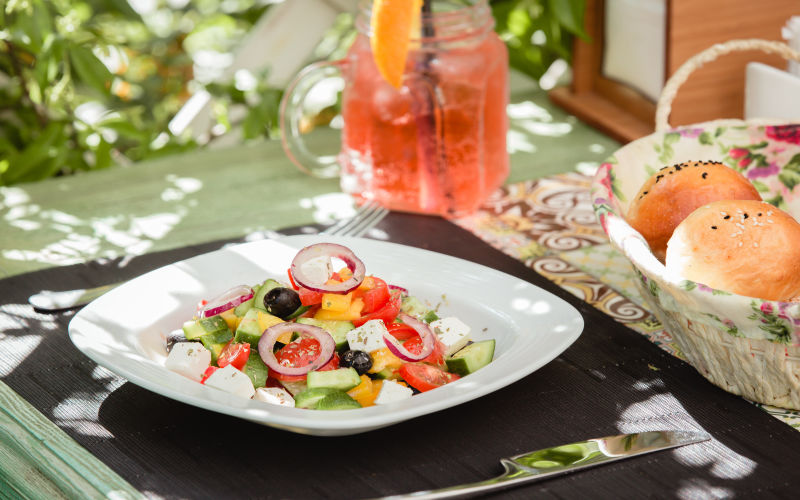How to make a nutritious Mediterranean breakfast for the whole family

Unlike heavy, fried breakfasts common in many cultures, a Mediterranean breakfast is light but nourishing. It focuses on natural, unprocessed foods that fuel the body and satisfy hunger without weighing you down.
If you are looking to serve your family a breakfast that is both delicious and heart-healthy this weekend, look no further than the Mediterranean diet, often ranked as one of the healthiest in the world.
Packed with fresh produce, whole grains, lean proteins, and healthy fats, the Mediterranean approach to eating is more than a diet; it is a lifestyle rooted in balance, tradition, and wholesome simplicity. And yes, it can all start with your weekend breakfast.
More To Read
- Ancient antelope teeth offer surprise insights into how early humans lived
- Four irresistible breakfasts to brighten your weekend
- 14 foods that don’t mix well and why you should avoid them
- Five healthy reasons to add basil to your meals
- As August temperatures drop, here is why you need a sauna or steam bath
- How to make irresistible caramel popcorn using a sufuria
So what makes a Mediterranean breakfast?
Unlike heavy, fried breakfasts common in many cultures, a Mediterranean breakfast is light but nourishing. It focuses on natural, unprocessed foods that fuel the body and satisfy hunger without weighing you down.
“The Mediterranean diet emphasises whole grains, olive oil, fruits, nuts, and vegetables, foods that reduce inflammation and support heart health,” said Dr Wincate Wangari, a Nairobi-based nutritionist.
“It’s perfect for families looking to eat clean and live well.”
1. Whole-grain bread or flatbread
For a Mediterranean diet, swap out white bread for whole-grain brown bread, pita, or chapati made with atta flour.
It is then toasted and lightly brushed with extra virgin olive oil; it forms the base for toppings or side servings.
2. Fresh tomatoes and cucumbers
Dice or slice the tomatoes, especially cherry tomatoes, then serve with a sprinkle of sea salt, olive oil, lemon juice, and herbs (like thyme or oregano).
This refreshing salad balances the richer elements on the plate.
3. Olives and avocados
You can go with the black or green olives to add a salty, satisfying bite.
Sliced avocados, which grow abundantly in the country, and it is an avocado season, and they provide a dose of healthy fats and creamy texture.
4. Boiled or poached eggs
Eggs offer lean protein and keep you full longer. Most people prefer boiled eggs for at least 20 to 15 minutes.
For variety, you can serve with a dusting of paprika or chopped fresh parsley.
5. Labneh or Greek-style yoghurt
A small bowl of thick yoghurt, either plain or topped with a drizzle of honey and crushed nuts, is a perfect finish.
If labneh is not available, plain mala (fermented milk) or Greek-style yoghurt works just as well.
Labneh is made by straining plain yoghurt to remove most of its whey (the liquid), resulting in a thick, spreadable texture, like a cross between cream cheese and Greek yogurt.
6. Fruit, fresh or dried
Add a bowl of seasonal fruits like watermelon, oranges, or grapes.
Or include dried fruits like dates and figs, which are natural energy boosters without added sugar.
7. Beverage: mint tea or black coffee
For beverages, instead of sugary juices, go for fresh mint tea or unsweetened kahawa(coffee)
If you want a cold option, you can have infused water with cucumber and lemon
This kind of breakfast encourages mindful eating, sitting down together, sharing plates, and eating slowly.
Other options
Instead of pita or artisan bread, use: Brown chapati (made with atta flour), ngano (whole wheat) toast, millet or sorghum porridge (uji), which is rich in fibre and very traditional, sweet potato or arrowroot (nduma) – great complex carbohydrates with a slow release.
Instead of imported olive oil (if too pricey): Use Kenyan cold-pressed avocado oil
You can enjoy a Mediterranean-style breakfast using plenty of Kenyan-grown and locally available ingredients, so there is no need for imported or expensive items. The key is to focus on fresh vegetables, whole grains, healthy fats, lean proteins, and fermented dairy. The meal is nutritious for adults and gentle on children’s digestion.
“We started doing Mediterranean-style breakfasts every Sunday,” said Wanjiru Mwangi, a mother of three from Kiambu.
“The kids love dipping bread into olive oil and yoghurt. It’s healthy, but it doesn’t feel like a diet; it feels like a treat. And different from what we have daily.
Most ingredients can be found at your local market, supermarket, or health food store.
Top Stories Today











































